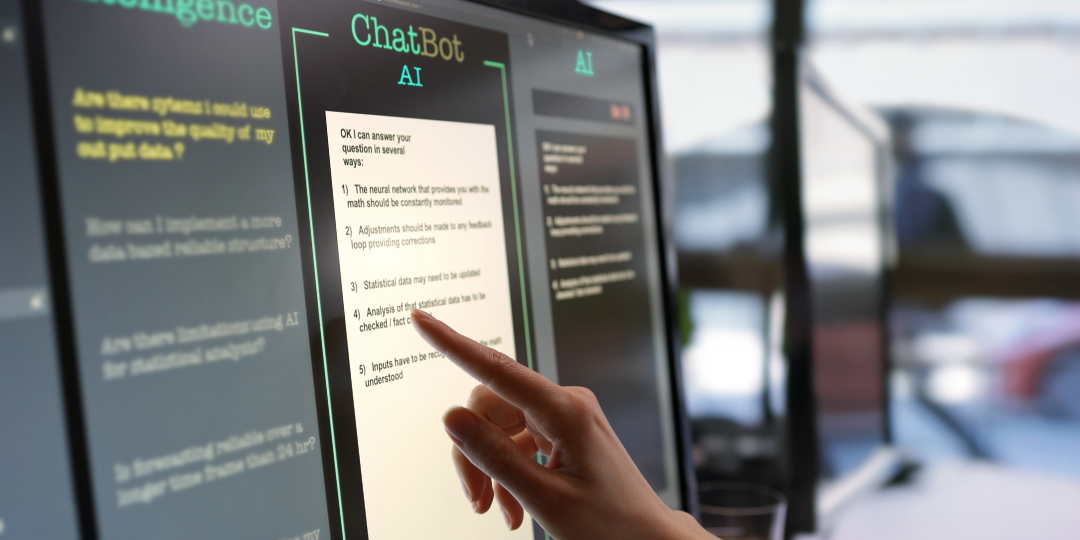The rise of artificial or augmented intelligence (AI) has created a swell of anxiety about the future of work. As more advances in tech are touted in the news, many people wonder how many jobs AI may replace in the knowledge industries — including IT.
But are the machines really on the cusp of taking over? The answer is far from ‘yes’. IT roles often involve complex problem-solving, critical thinking, and decision-making. For AI, delivering results requiring intuition, creativity, and adaptability remains challenging.
We highlight how AI benefits humans in the workforce, its limitations, and why IT workers are unlikely to be replaced by androids any time soon.
IT Roles Depend on Skilful Human Interaction
Several generations of Hollywood movies, sci-fi books and comics might have convinced us that humanoid robots can become our equals, surpass us, or even enslave us. No AI tool, however, can match the complexity of human intelligence, which involves much more than the ‘autocorrect’ reasoning of large language models.
AI-based virtual assistants or chatbots can respond to user inquiries and guide users through basic troubleshooting procedures. They can reduce the burden on IT staff by answering frequently asked questions and resolving simple issues, freeing up human time for more complex tasks.
But these AI tools are unable to handle the most complex support requests, define project goals or scope, act on complicated feedback, or coach employees with the sophistication that humans possess.
In contrast to AI’s inability to become fluent, humans have interactive language superpowers. We can adjust our communication style with whomever we speak to. We are capable of empathy (emotional intelligence) and can build relationships. These are all vital factors for making projects successful and keeping clients satisfied.
Context Is Everything
So far, AI systems have impressed us with their ability to crunch data, detect patterns and provide recommendations based on those patterns. But AI is often unable to comprehend the context and nuances of a situation. AI can often misinterpret context-specific meanings, such as expressions, sarcasm, or irony. In effect, they can’t quite copy us.
AI also needs help generalising and adapting knowledge to new and unfamiliar situations, unlike humans who can apply their knowledge across various domains. For example, an AI system coded to solve a specific technical issue might not be able to solve a different type of problem without new code written for it.
Human IT professionals have the experience and expertise to consider broader business objectives, user experience challenges, and compliance constraints to develop effective solutions. As it stands today, AI can only partially replace this contextual understanding and decision-making capability.
AI Will Augment Work, Not Replace It
IT professionals are already using AI to free up time for more strategic and creative work. There is growing evidence demonstrating how AI supports workers in the IT industry. A recent GitHub survey revealed that 92% of developers already use AI tools.
Developers are using AI to automate repetitive data entry and run complex tasks like code translation and debugging. In cybersecurity, AI-powered analytics tools identify patterns and anomalies in system logs, network traffic and user behaviour.
Where AI can generate code and summarise large chunks of natural language, it requires humans with relevant domain knowledge to oversee its output. Far from making technical teams obsolete, AI must be paired with humans who understand programming languages and system architectures.
Trust and Ethics Are Too Important to Automate
Trust is crucial in IT, especially regarding security, privacy, and handling sensitive data. Although AI systems can be trained on vast amounts of data, they are still prone to producing output filled with biases, errors or security vulnerabilities.
Business leaders and policymakers recognise the risks raised by the rise of artificial or augmented intelligence. As Stanford research shows, large organisations are adding guardrails around the use of AI in business settings, while governments are introducing legislation to mitigate risks relating to bias and inaccuracies.
Human IT professionals will remain indispensable for ensuring the ethical use of technology, protecting data and implementing security measures. The trust placed in human expertise is challenging to replicate with AI alone.
Summary
We are increasingly seeing examples of how AI supports workers in the IT industry, but its limitations are significant.
Tech professionals are regularly faced with novel challenges that require a deep understanding of systems and technologies, making their roles difficult to replace with current AI capabilities.
The number of use cases highlighting how AI benefits humans in the workforce will continue expanding but will demand human input or oversight at every step along the way.
Need help with finding a great future-proof IT job? Here at Continuum, we use our knowledge of the latest market trends to help IT professionals make informed career decisions. To find ideal IT opportunities that make the best use of your human skills, contact us today.

